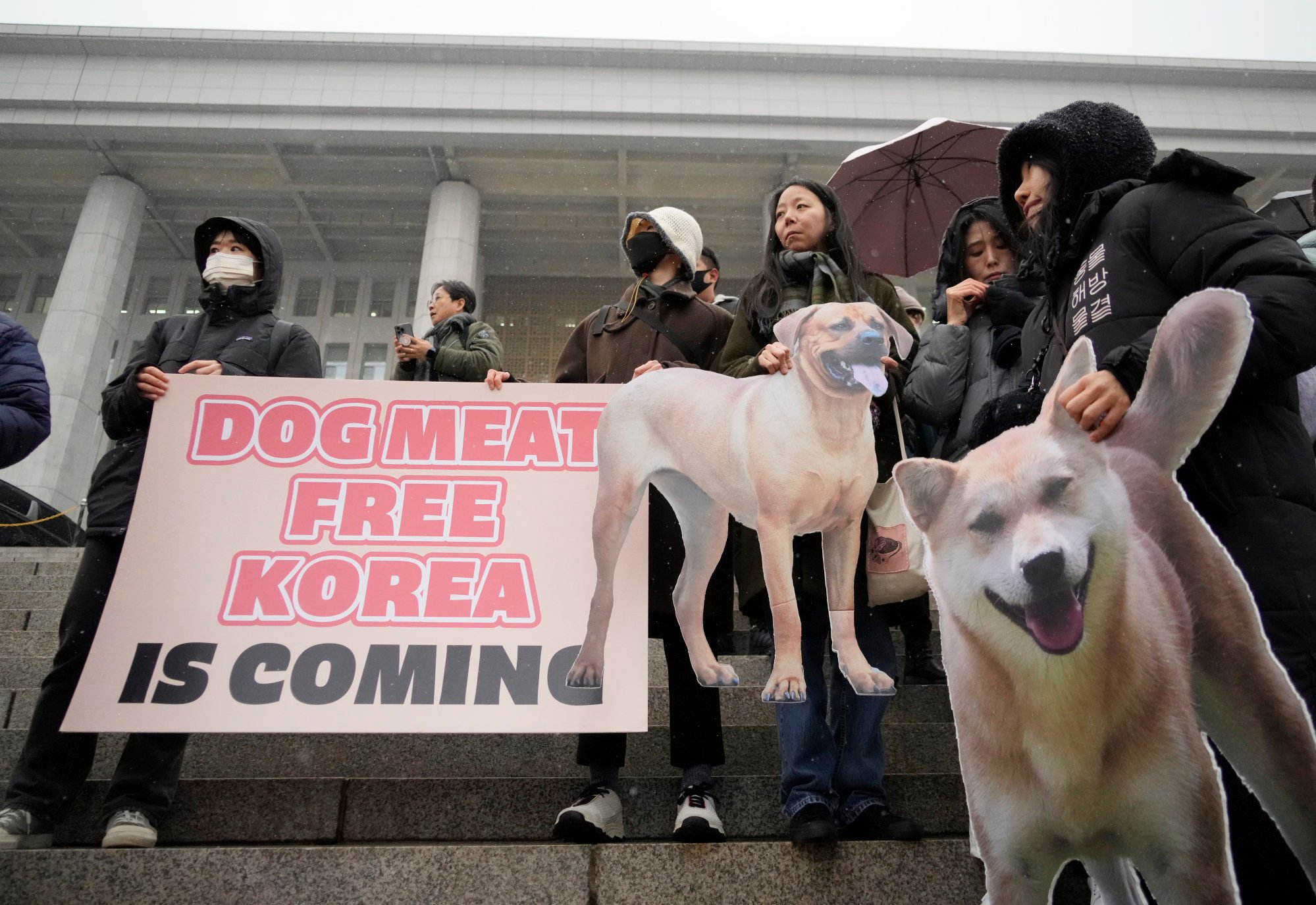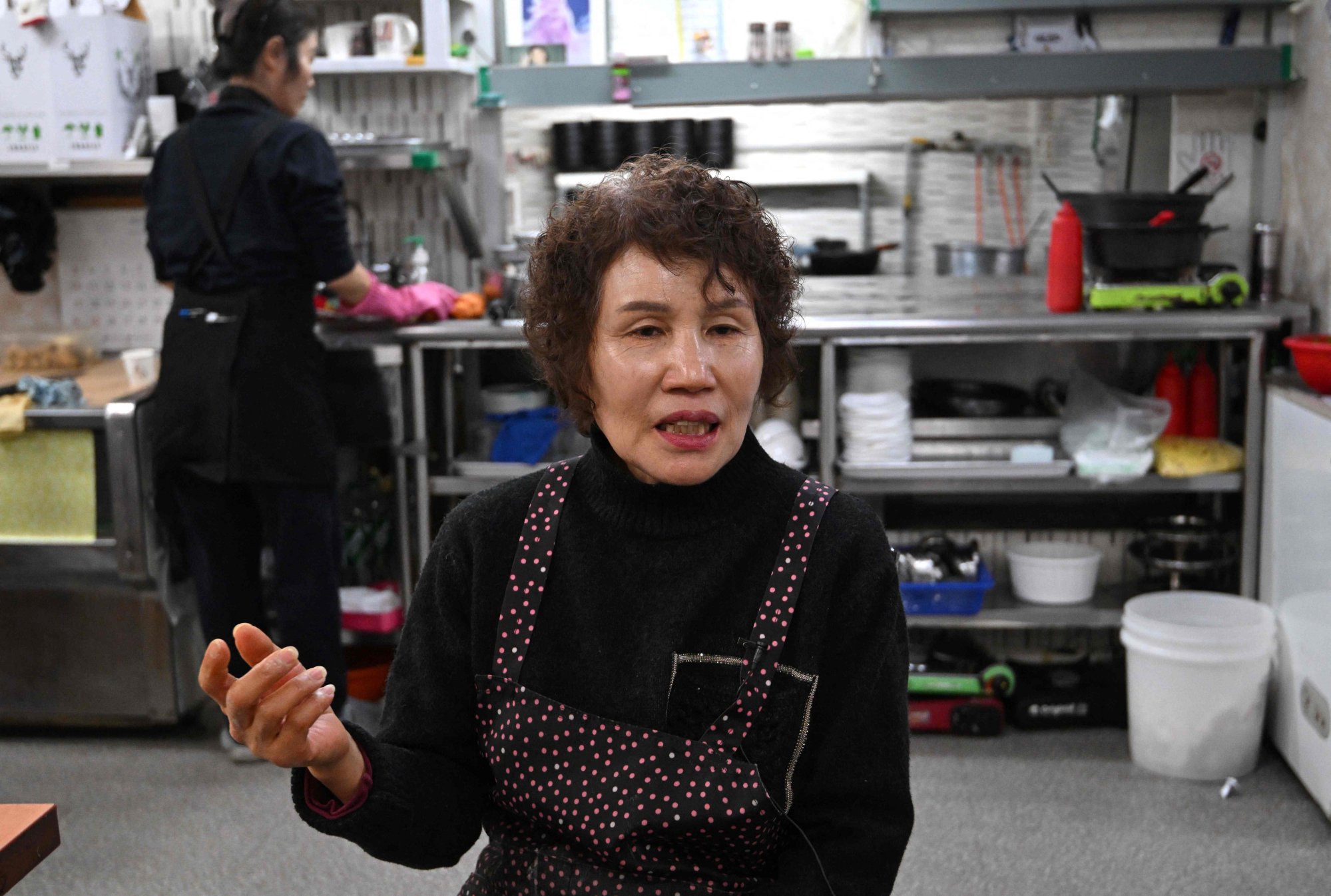South Korea’s dog meat ban opposed by vendors, customers: ‘cows are living animals too’
[ad_1]
“In the past, when the business was good, vendors used to sell as many as 30, 40 dogs a day,” she said. “Now, we sell one to two dogs on average.”
Eating dog meat is effectively taboo among younger, urban South Koreans, and pressure on the government to outlaw the practice from animal rights activists has been mounting.
On Tuesday, lawmakers passed a bill essentially banning the long controversial industry, prohibiting the breeding, selling and slaughtering of dogs for their meat.

Breaking the law will be punishable by up to three years in prison or 30 million won (US$23,000) in fines.
“I’m not happy with the decision to ban it by law,” Choi said, who lamented that she had no choice but to accept the change.
“Young people, who have mostly lived without going through any hardships, are extremely fond of dogs,” said Choi.
But for the businesswoman, her restaurant – a family pursuit she had planned to hand down to her son – defines her life.

Choi had tried everything to make a living, from selling small side dishes and street food, to noodles at the market, before she settled on her restaurant, expanding her business as she found success.
“It’s very troubling because things ended up like this,” she said, her eyes tearing up.
In recent years, as the tide of public opinion began to turn, Choi says the dog meat vendors at the market have been subject to constant harassment by activists, who staged protests in front of their restaurants and cursed at them.
“It was a bit harsh. They didn’t treat us who sell bosintang (dog meat soup) as humans,” she said.
Farm owners attack South Korean first lady for trying to ‘end’ dog meat eating
Farm owners attack South Korean first lady for trying to ‘end’ dog meat eating
Years of intense protests led to a drop in the number of customers, she said, adding that she was thinking of serving pork rib soup in the future, once the law goes into effect.
The alleyway, which once bustled with restaurants serving bosintang was visibly empty Wednesday, with many of the shopfronts empty.
Still, Choi said she had seen more customers the day after the passage of the dog meat prohibition bill than she had on an average day in recent months.
Chicken, pigs, cows are all living animals – I oppose only banning dog meat
“I like having dog meat when I drink because I don’t get a hangover the next day,” said an elderly customer at another dog meat restaurant, who gave only his surname, Jang.
Jang said that although he does not eat dog meat often, he had come to the restaurant prompted by the thought of not being able to eat it ever again, in three years when the ban comes into force.
Another customer in his 70s, who gave only his surname Choi, said that although he is OK with not being able to eat the controversial meat in the future, he opposed the bill.
“Chicken, pigs, cows are all living animals – I oppose only banning dog meat,” he said.
[ad_2]
Source link

